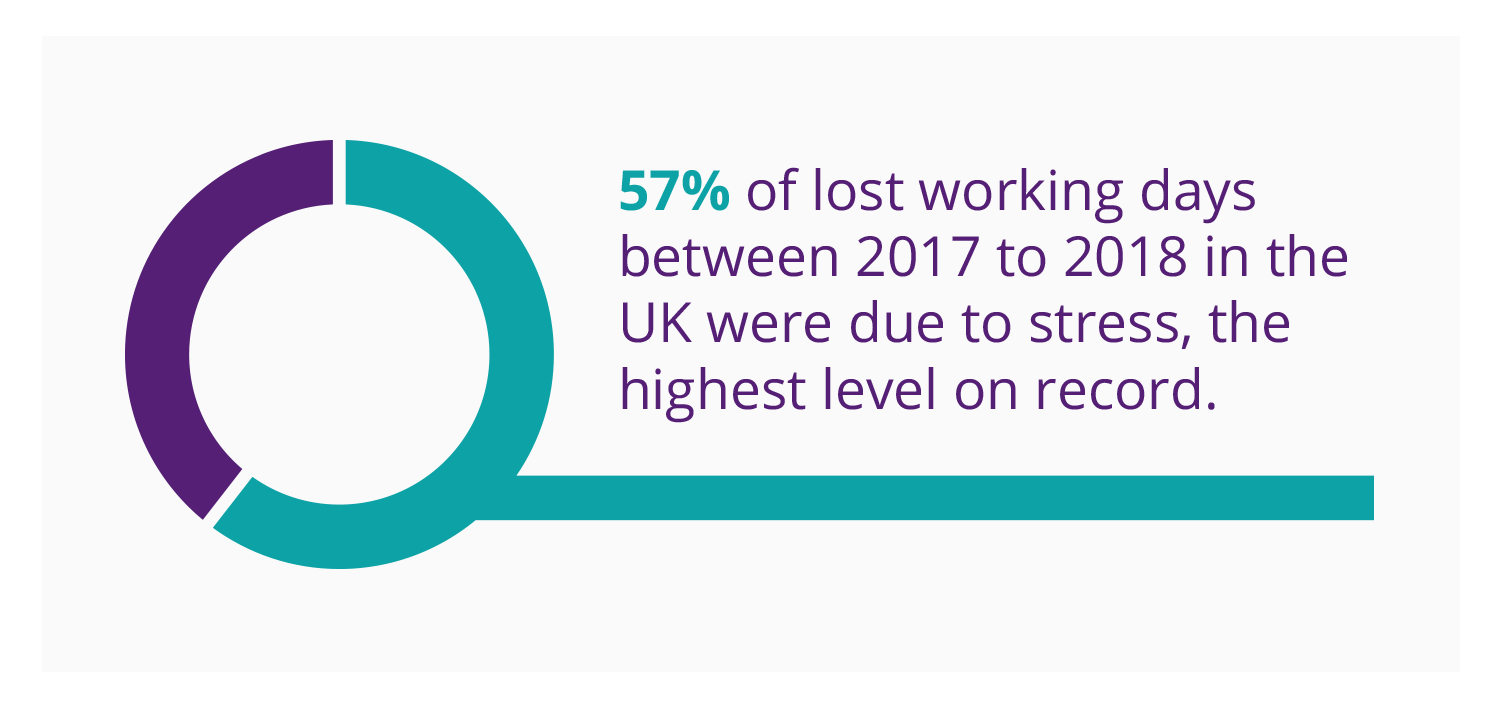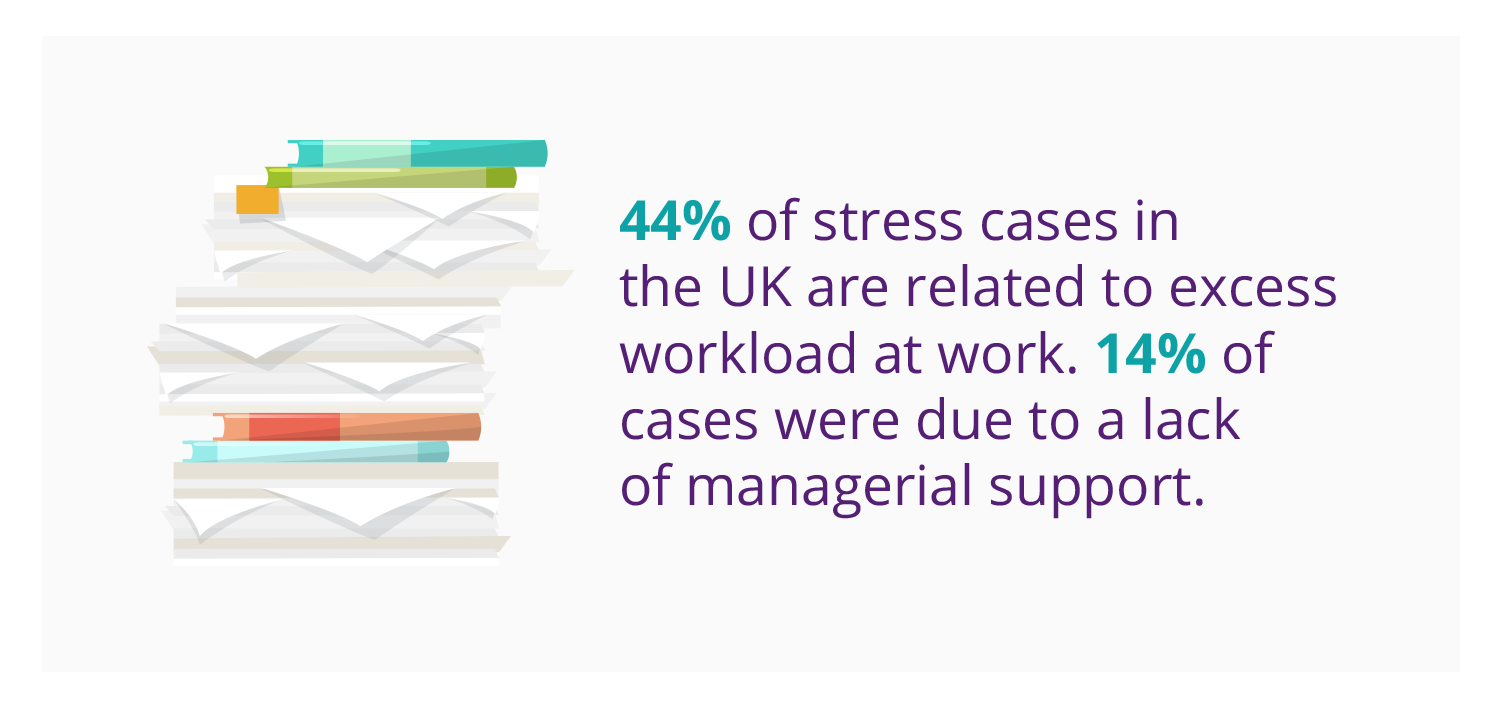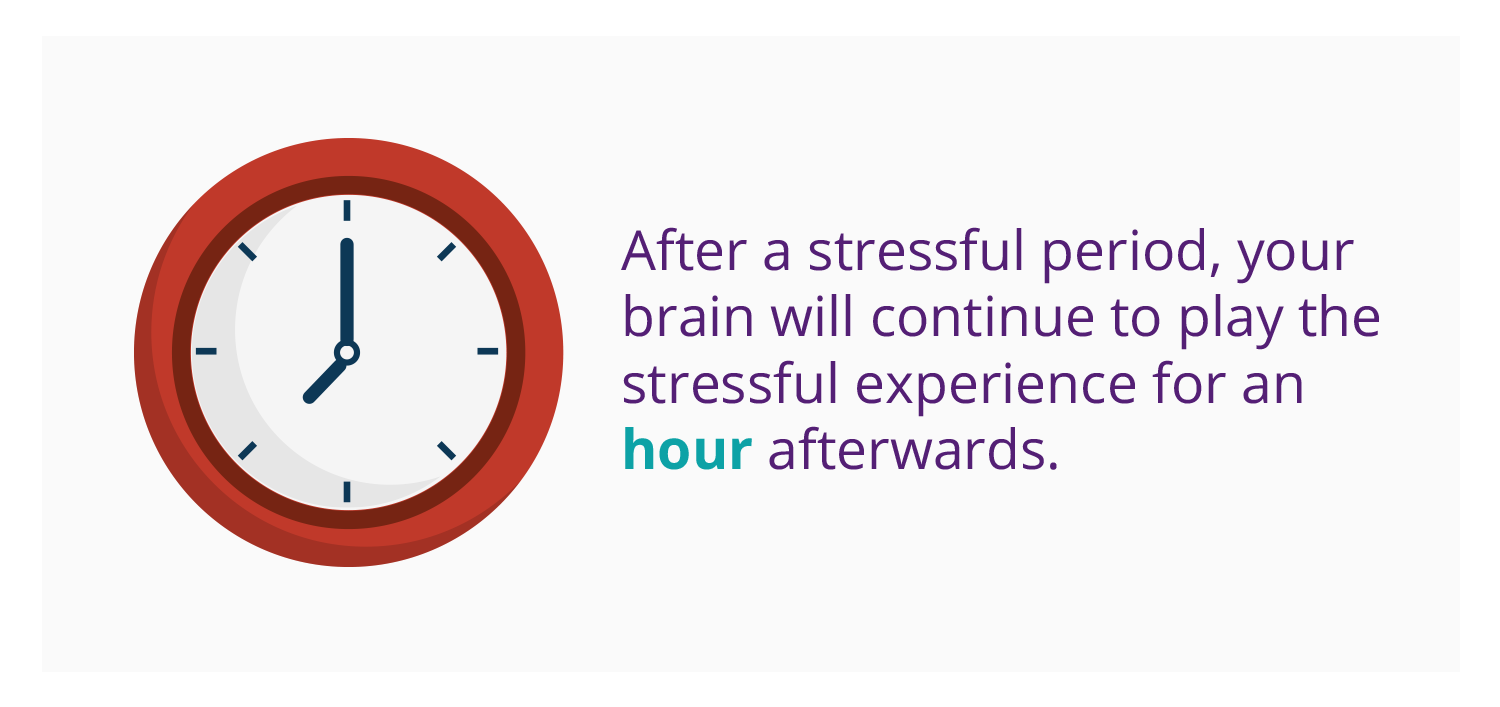Your staff are your strongest asset. The benefits of having healthy and happy employees are endless. Predominately, happy and healthy staff are proven to be more motivated, productive and take less sick leave, which in turn makes them more profitable.
Likewise, happy staff will become your biggest advocates, not only bringing in clients but also new recruits.
Intermittent stress at work is normal and can be a good thing. It energises people, motivates them and helps them focus.
On the other hand, persistent stress in the workplace can be expensive. Accumulated days off, unproductive staff and high staff turnover can quickly affect a company’s profit margins. In fact, 57% of lost working days between 2017 to 2018 in the UK were due to stress, the highest level on record.

There has never been a more important time for employers to make reducing stress in the workplace a priority.
Here are CK’s top recommendations for managers to follow, to reduce stress in the workplace.
1. Helping staff manage their time
The predominant cause of stress in the UK is pressure related to excess workload at work (44% of stress cases to be exact). Regular tight deadlines and the constant feeling of ‘not doing enough’ can quickly mount up, and become a mental health concern.

The second most cited cause for stress in the workplace is a lack of managerial support. As a manager, understanding you employees’ main stressors and working with them to eliminate these will not only show your team that you care, but will also encourage them to be more productive.
A simple solution can be setting reasonable deadlines and giving your staff enough time to complete each task properly, to avoid them from feeling overwhelmed with long to-do lists. Another good time management method is to start every morning with a short planning meeting, where you set out the requirements and what is expected of each employee ahead of the day.
2. Communicating clearly with employees
As an employee, being kept in the dark and not knowing where you stand can be a major cause for anxiety. Likewise, managers can also feel stressed if they don’t have a clear understanding of what their team is up to.
The best way to avoid this two-way stress is regular communication. This can be done via workshops or one-to-one interviews, questioning your staff on how they feel at work, what they wish to achieve and what you expect from them.
Being transparent with employees and setting out clear goals is an excellent way to relieve stress for both parties.
3. Allowing flexi-time and remote working when required
Nowadays, everyone is looking for that flexibility at work. Letting staff choose their working hours means they can work to a less stressful schedule that best suits them. For example, they can avoid the morning rush hour or work around family requirements. As a result, they can come to work more focused.
Not all organisations are able to offer this perk, but for those who can, this has been a proven method to help reduce stress levels up.
Furthermore, allowing employees to occasionally work from home is another proven way to successfully motivate them and help them feel more relaxed whilst at work.
4. Creating a stress-free environment
After a stressful period, your brain will continue to play the stressful experience for an hour afterwards. To avoid developing chronic stress, stress expert Dr Mithu Storoni suggests always following up an episode of stress with another enjoyable intense activity, to engage your mind in something else and avoid rethinking about the stressful episode.

Providing staff with an area to relax and engage in fun activities, such as a table tennis area, after a period of stress will allow them to recover from a stressful episode.
More importantly, keeping the stress period to as short a time period as possible avoids the brain seeing stress as a major threat, and will allow it to be less reactive to future stressors.
Does your office allow your employees a place and the time to recharge after moments of stress?
5. Encouraging staff to stay active
Research has proven that the best ways to reduce stress are by exercising and meditating. Studies have shown exercise reduces fatigue, improves alertness and concentration, and enhances individuals’ general cognition, all contributing to keeping the brain energized and avoiding the negative effects of stress.
Introducing workplace wellness schemes like discounted gym memberships or a lunchtime running club are good ways to encourage your staff to keep active. Other ways could include an office step count competition, organising charity runs or an active day out.
6. Encouraging social activity at work
According to the NHS, spending time with friends helps us relax and alleviate some of the stress we feel from day-to-day life. Therefore if people enjoy spending time with their coworkers, they will feel more relaxed at work.
All in all, encouraging staff to interact with one another and be sociable will improve the office morale and boost employee satisfaction. This in turn improves employment retention and supports recruitment campaigns.
You may also like to read:
